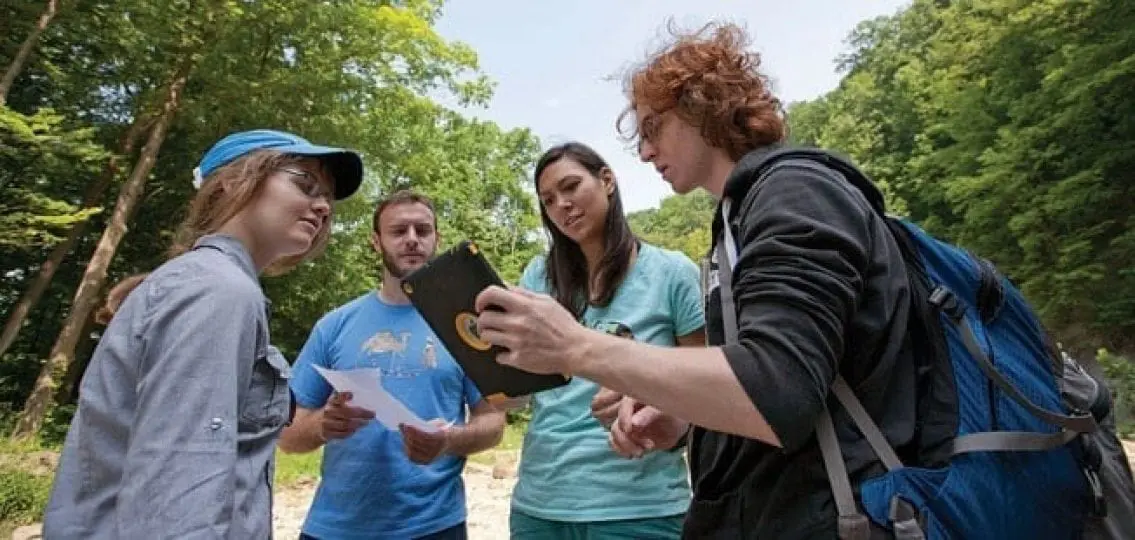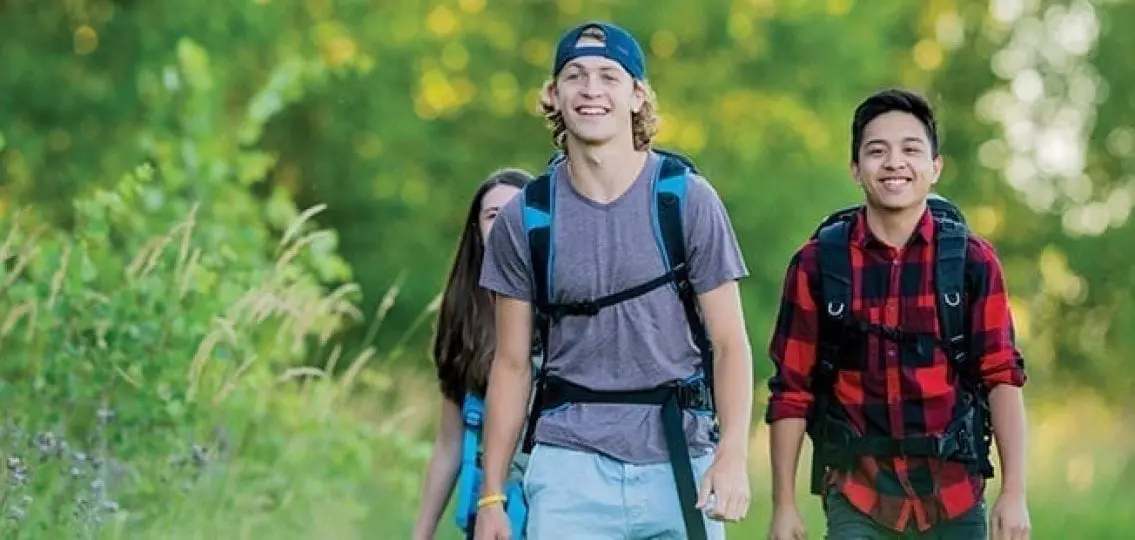Remember what your mother would tell you and your siblings to go outside when you were dusting it up in her living room? She knew all about the benefits of going outdoors for squirrelly kids.

When Tom Morley’s kids, 14, 12, and 7, are sulking or bickering, he pulls out the oldest trick in the book. He hustles them outside to walk the dog. Within moments, the mood lightens and the tension dissipates.
Magic or Science?
Turns out, there’s good science to back your mom and Tom Morley up. There are both physical and psychological benefits to spending time outdoors.
Morley, an entrepreneur who serves as a board member at the Cleveland Museum of Natural History, became more intentional about introducing nature into the family dynamic when he noticed the positive changes that occurred after spending time in the great outdoors. [adrotate banner=”38″]
“It’s a visible change,” says Morley. “I see more cooperation, less tension, and the volume on everything just gets turned down a little,” he says. The more he read up on the topic, the more convinced he became that this connection to nature was key.
“We are physically wired to respond to being outdoors,” says Deborah Gilboa, M.D., a Pittsburgh area physician and parenting expert.
“Being outdoors causes us to take slower, deeper breaths and to take more in visually. We are much more likely to look up and look around when we are outside.”
The result can be a significant reduction in stress and anxiety, making this a great addition to the list of positive coping strategies Gilboa thinks all teens should have in their arsenal. “It’s important for teens to know that this is a self-regulation technique they can employ on their own,” she says.
But how to lure teens away from their screens and into the natural world?
3 Strategies to Get Your Kids Outside:
1. Explain the scientific rationale behind it.
“I share with my kids what I have learned about the scientific benefits of being in nature. So that it’s not just ‘Because I said so,’ or ‘Because I’m the parent.’ The biggest lesson I learned is that I need to meet them where they are and find common activities we all like to do together, like camping,” says Morley.
Even if you can only entice your teen as far as the backyard, with phone still in hand, there are benefits to going outdoors to be had. “If teens are experiencing conflict or feeling overwhelmed, just spending some time sitting on the porch can help to relax them,” says Gilboa.
2. Keep it simple.
To get the benefits of going outdoors for a little nature therapy, you don’t have to mount a camping expedition. Taking advantage of nearby nature in and around your neighborhood can do the trick. It’s as simple as a hike in the local nature preserve or a walk around the block.
“Nature is everywhere,” says Harvey Webster, Chief Wildlife Officer and Museum Ambassador at the Cleveland Museum of Natural History. “I always remind kids that if they want to see something cool, they don’t have to do something really profound. Just go outside and look up.”
For teens (and parents) who are used to looking down at their phones, this can take a little re-training. But it might just pay off with the sighting of a bird’s nest or a red-tailed hawk.
3. Avoid “Nature Deficit Disorder.”

Richard Louv, author of Last Child in the Woods and co-founder of the Children & Nature Network, even coined a phrase for this trend: “Nature Deficit Disorder.” Luckily, the cure Louv prescribes is simple and costs nothing: a little “Vitamin N.”

As teens get back into the school schedule—with all the stress that comes with it—you may find a little nature therapy is just what the doctor ordered.




